Jamaica Inn
Information
- Date
- 19th July 2024
- Society
- Guildburys Theatre Company
- Venue
- Merrist Wood College, Guildford
- Type of Production
- Play
- Director
- Eddie Woolrich and Ian Nichols
- Written By
- Adapted from Daphne du Maurier’s novel by Lisa Evans
Jamaica Inn was written by Daphne du Maurier in 1936 following a visit she made to the inn in 1930. Lisa Evans adapted it into this play in 2004. It is indeed a splendidly exciting story, and the play enabled the Guildburys to show off their many talents (not only their acting talents) in this wonderful production staged firstly here in the glorious surroundings of Merrist Wood parkland, and later in the summer very aptly at the Minack Theatre in Cornwall.
Merrist Wood is the ideal place to stage open air theatre. Woodland provides shade (30 degrees on the evening we watched), and glorious views over the North Downs with the full moon rising in the distance.
Once again, Guildburys produced a marvellous programme. The design was superb, illustrated with a photo of the inn, of the various film and TV adaptations, and a painting of wreckers at work. The programme was dotted with various tools of the wreckers’ trade – pistol, rope, compass, telescope and so on. There were pieces on both the author and theplaywright; on Cornish smuggling and wrecking myths; and on the various adaptations of the story. There were interesting rehearsal photos, and a list of Guildburys’ past open-air productions since 1979 together with photos of some of these. All this packed into a visually splendid A4 programme. As I said, Guildburys have many talents!
The set was very atmospheric, gloomy and moody (which is how I remember the actual Jamaica Inn!). A large arched door to the left, with a huge wooden bolt, a lock-in chamber to the right for foul deeds, a raised platform for Mary Yellan’s bedchamber, the swinging inn sign which resembled a gallows, and the ominously ticking barroom clock. Rough furniture, crude cooking pans, and of course daggers, pistols, ropes, even a hangman’s noose at one stage, were in evidence. Finer furniture appeared for the scenes at the squire’s house and the vicarage. For the scenes on the rugged moor the cast with their black cloaks formed the rocks. Cleverly done!
Huge turnover-topped boots, jerkins, loose smock-type shirts, ‘pirate’ headgear clad the gents who frequented the inn. Simple peasant dresses, skirts, jerkins for the ladies of the chorus. Both wore long hooded cloaks in the moor scenes. Mary Yellan, her Aunt Patience, and the Woman who accompanied Mary wherever she went wore pretty, simple dresses and bonnets. The squire and the vicar were appropriately dressed and sported wigs.
Both lighting and sound added greatly to the spooky atmosphere. Sound effects were super, from the ominous ticking of the clock, to the eerie sounds of the moor, the firing of shots, the cartwheels over the rough moorland roads, the stormy sea, the horses, the birds. Excellent stuff!
Co-directors Ian Nichols and Eddie Woolrich had assembled a superb cast to do justice to this fine play, which I think made an excellent choice for an open-air production, full as it was of dastardly nocturnal activities which we watched as night fell, bats flew about, and the full moon rose in front of us. The threatening atmosphere was there right from the start, as the chorus opened the proceedings: ‘For no one stops at Jamaica Inn’. Mary Yellan arrives there after the death of her mother, to live with her Aunt Patience and Uncle Joss, and received a cold welcome from her cruel uncle. Mary soon realised the way he terrorised her unfortunate aunt, who knew no other life. Mary Yellan was accompanied at all times by a woman in green, her warning voice, her conscience, it seemed. Caroline Whillans was very impressive in this role, and her presence greatly enhanced our understanding of Mary.
Claire Racklyeft, as Aunt Patience, and Tim Brown, as Uncle Joss Merlyn portrayed this unhappy pair of desperate people to perfection, with Patience showing the abject misery of such an abusive relationship, where there is no way out, and Joss wielding his power over both her and all around him relentlessly. Fine acting from both, a well-matched pair.
Mary Yellan proved to be a girl of strong will, determined not to be cowed into submission by her evil uncle, though one could see the fear in her eyes (but not when he was looking at her, there she hid it defiantly) This was a first class, nuanced performance from Rachel Mawditt, she was tough, she was vulnerable.
The chorus reappeared continually throughout the play, with their chilling, warning songs, more chants than songs. They became sheep on the moors, or rocks at times with clever use of their cloaks. This was a brilliant construct, greatly enhancing the atmosphere of fear and foreboding. ‘What’s the point of an inn where nobody stops?’
There are bar customers, of course, including the Idiot of Dozmary (Jeremy Gooding) who is mercilessly tormented and beaten, with Joss as the ringleader.
Jem Merlyn arrives in the bar one day, Joss’s brother, plainly introducing himself as a horse thief, full of bluster and bravado, interesting Mary Yellan in spite of herself. The two brothers don’t get on, Jem is not involved in the mysterious goings on at the inn.
To her horror, Mary one night observes the arrival of 15-20 wagons containing barrels, and thus realises her uncle and his gang are smuggling. Once seen, this can’t be unseen, and Mary’s fear, especially for her Aunt Patience, continues to grow. A man is murdered, a stranger.
And so the tension builds. The squire, Mr Bassat, arrives. Mary denies seeing anything, and denies seeing Jem. ‘In the last two minutes I’ve lied for both my uncle and his thieving brother.’ Mary is gradually drawn into the activities of the smugglers by Joss, and forced by him to watch them wrecking a ship.
Mary is deserted by Jem at the Launceston Fair, she knows not why and fears the worst. She is brought back by the kindly Vicar of Altarnun, who gives her food and shelter for the night at the vicarage, returning her to the inn the next day. An interlude where Mary can relax at last. Neil James plays Francis Davey very well, calming and friendly, yet not threatening, a fine man we think.
The fight scenes were very well done, using all parts of the stage, and were quite alarming to watch. The songs, more chants than songs, were also alarming, and the atmosphere they created remains with me. As do the excellent Cornish accents adopted by the whole cast, save the Vicar. His lack of one, and his fine clipped tones, emphasising his otherness.
And so the plot continues and the tension rises. Should Mary Yellan trust Jem Merlyn? Not sure I’d trust him, an excellent performance from Joe Hall.
Once again, a marvellous summer production from the clever Guildburys, who always go above and beyond. I only wish I could see it down at the Minack Theatre!
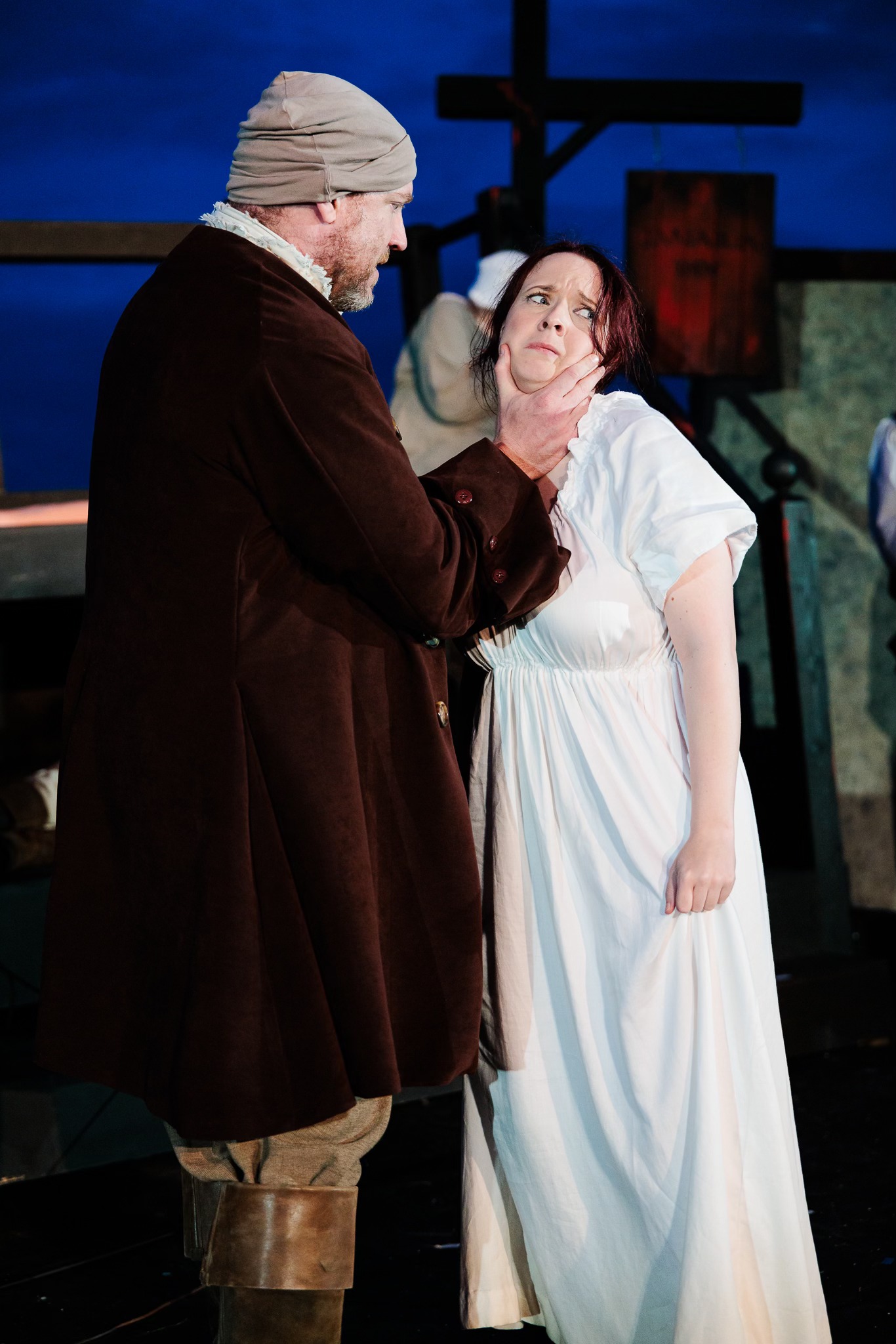 |
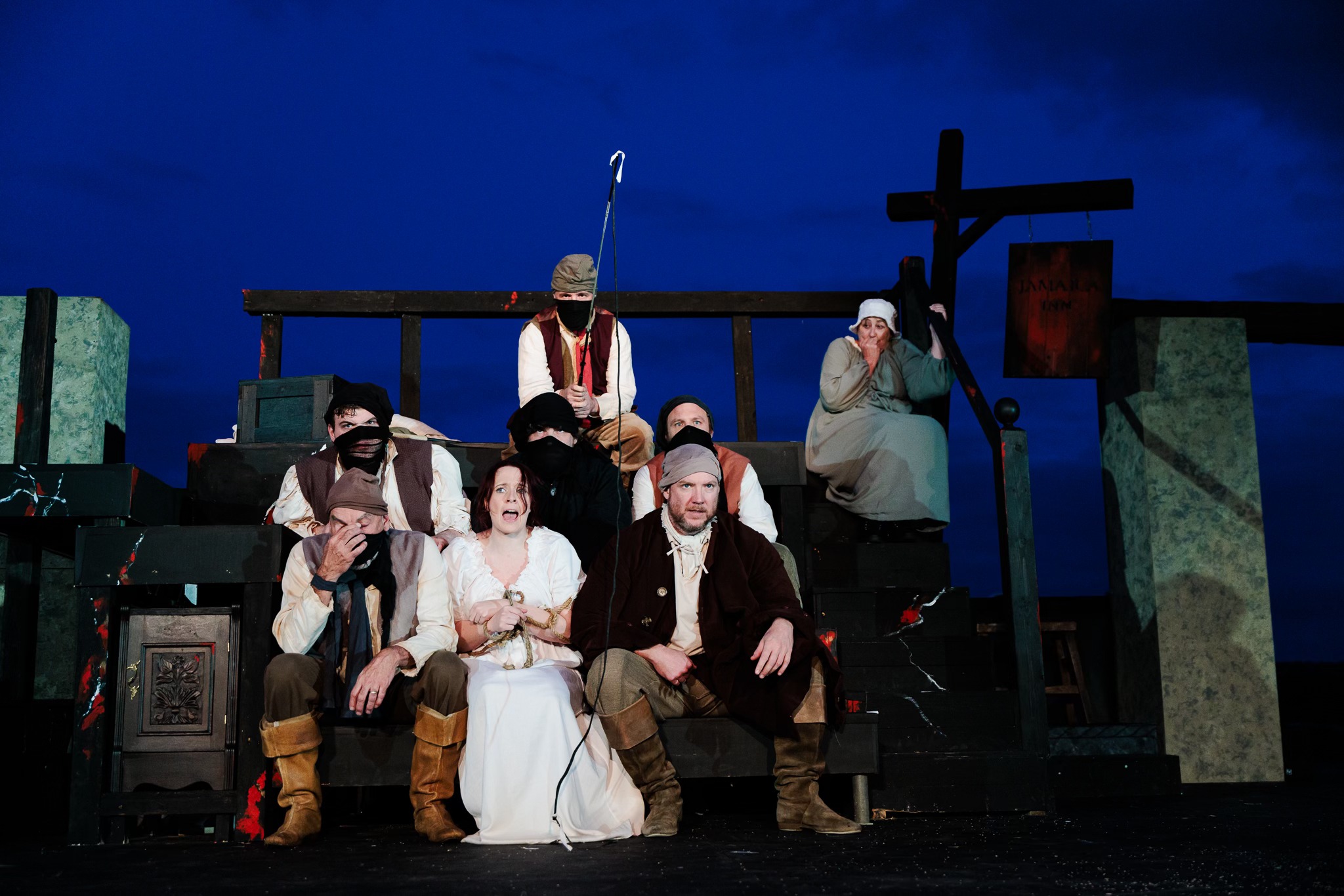 |
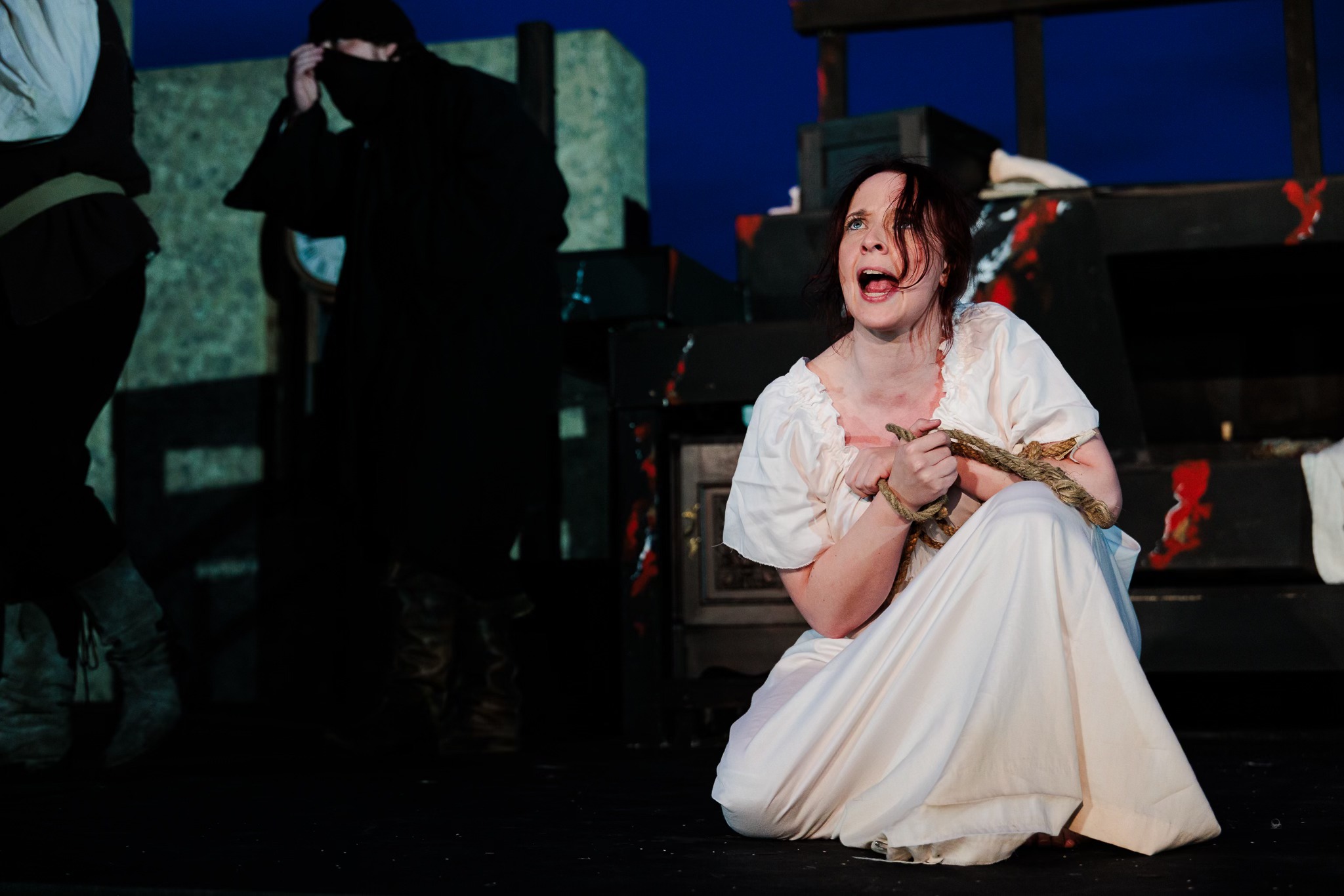 |
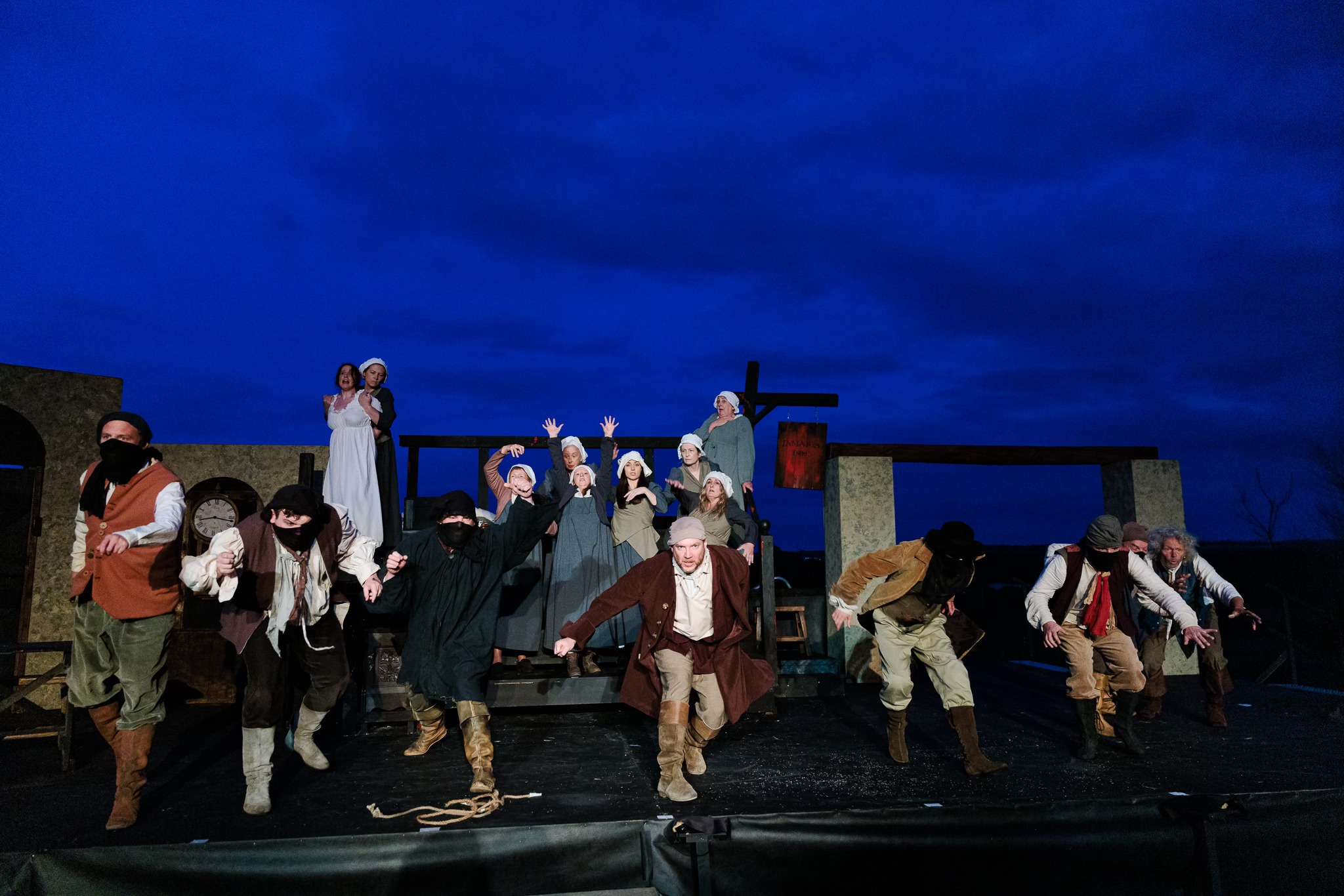 |
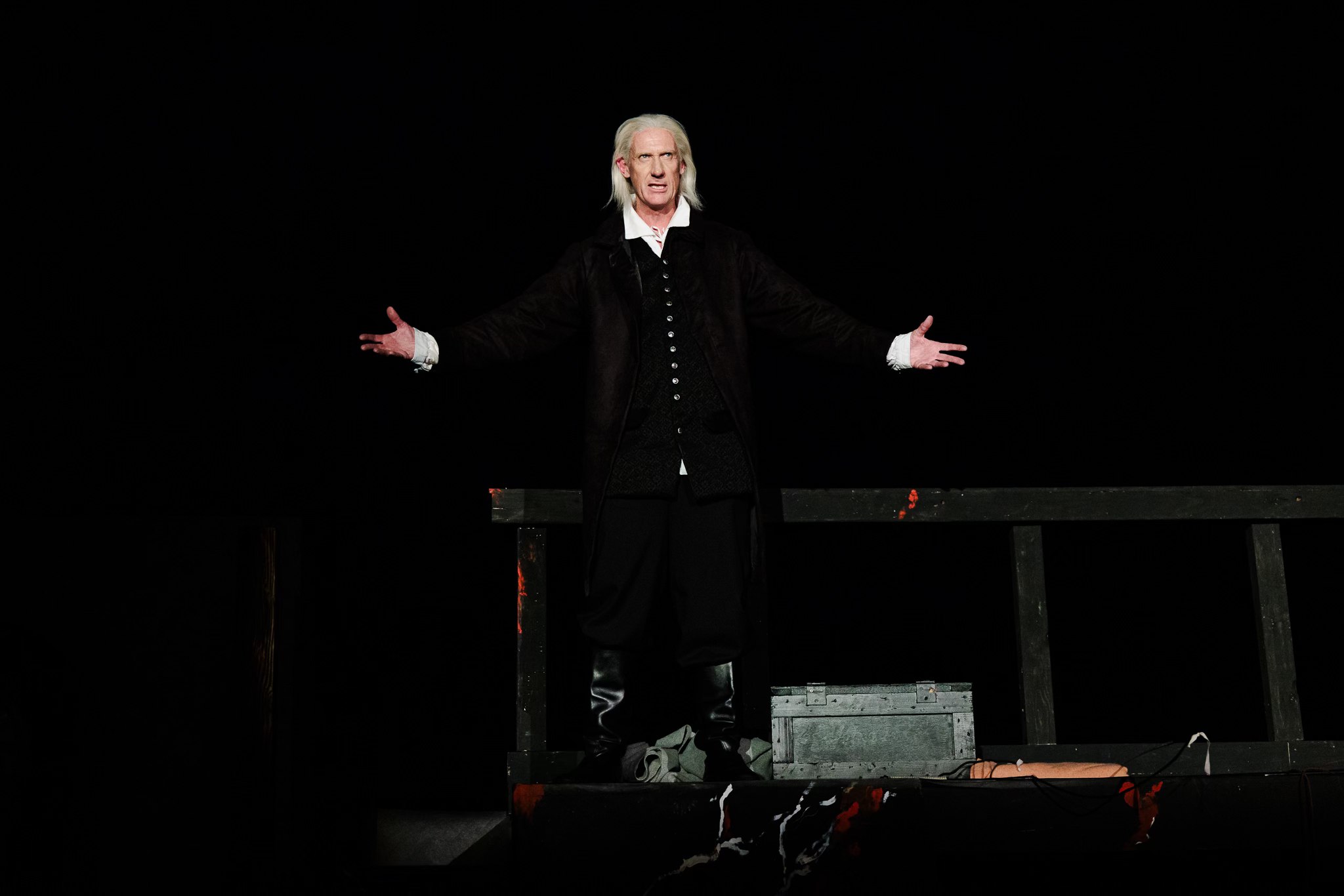 |
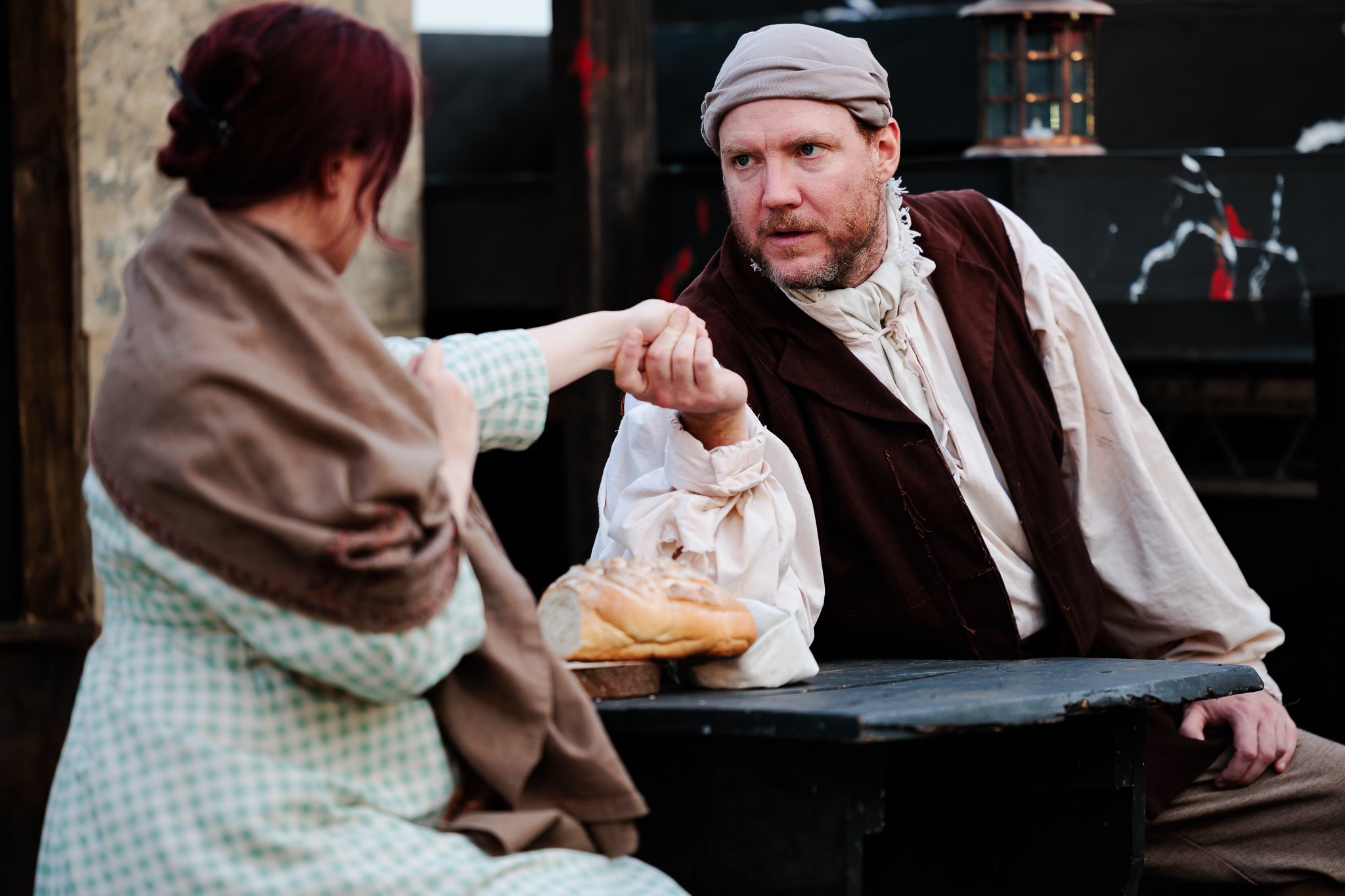 |
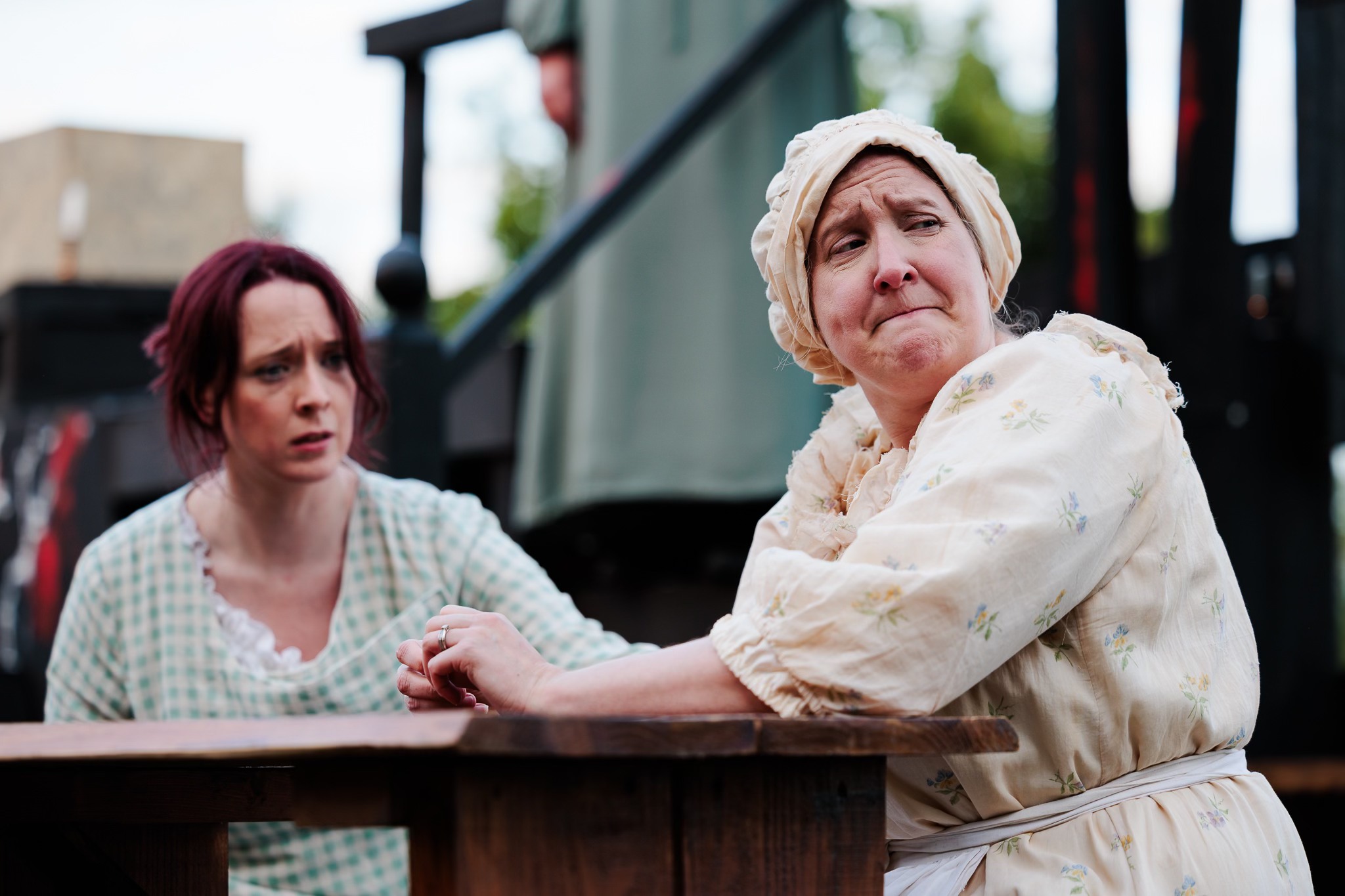 |
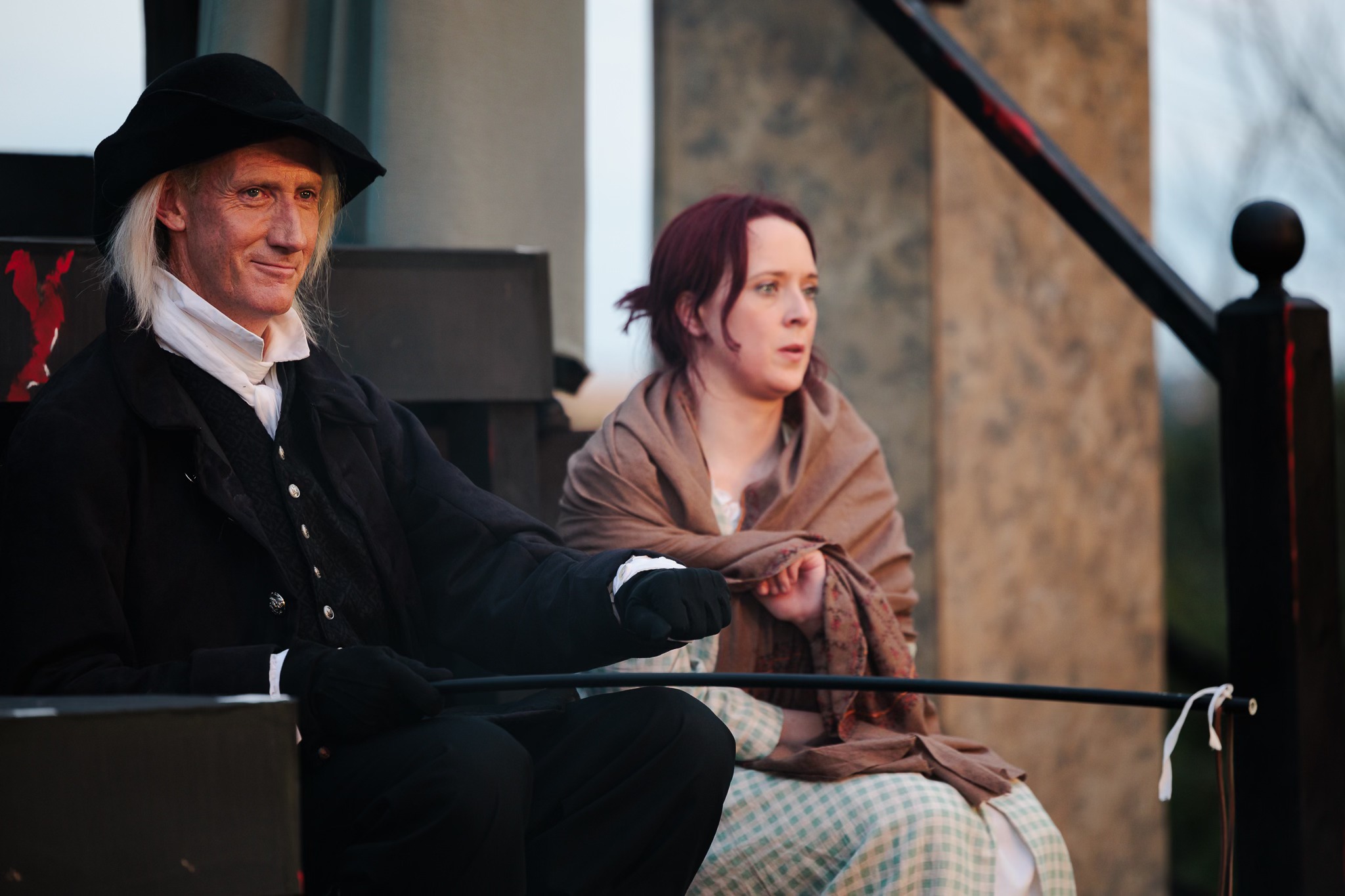 |
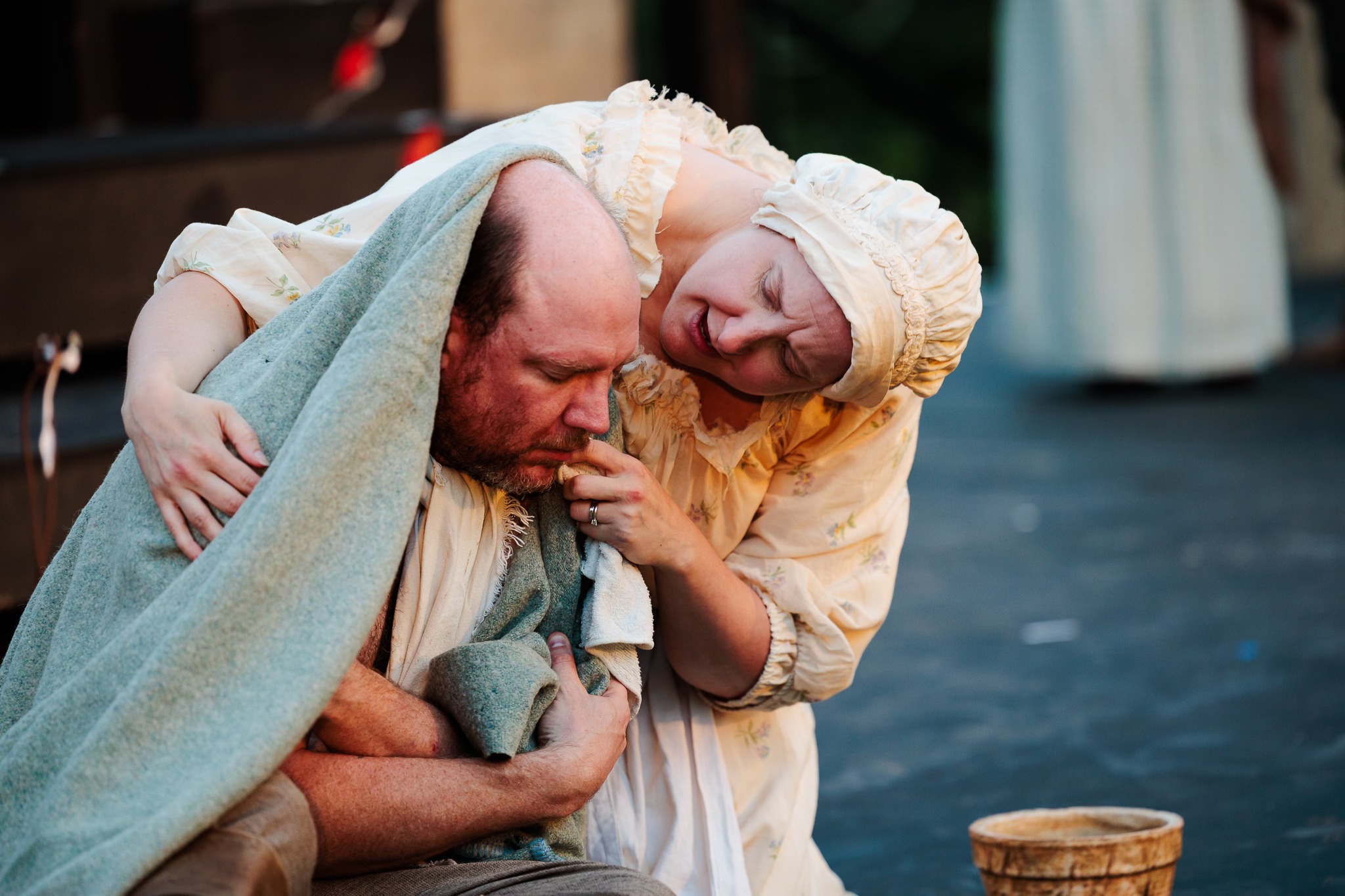 |
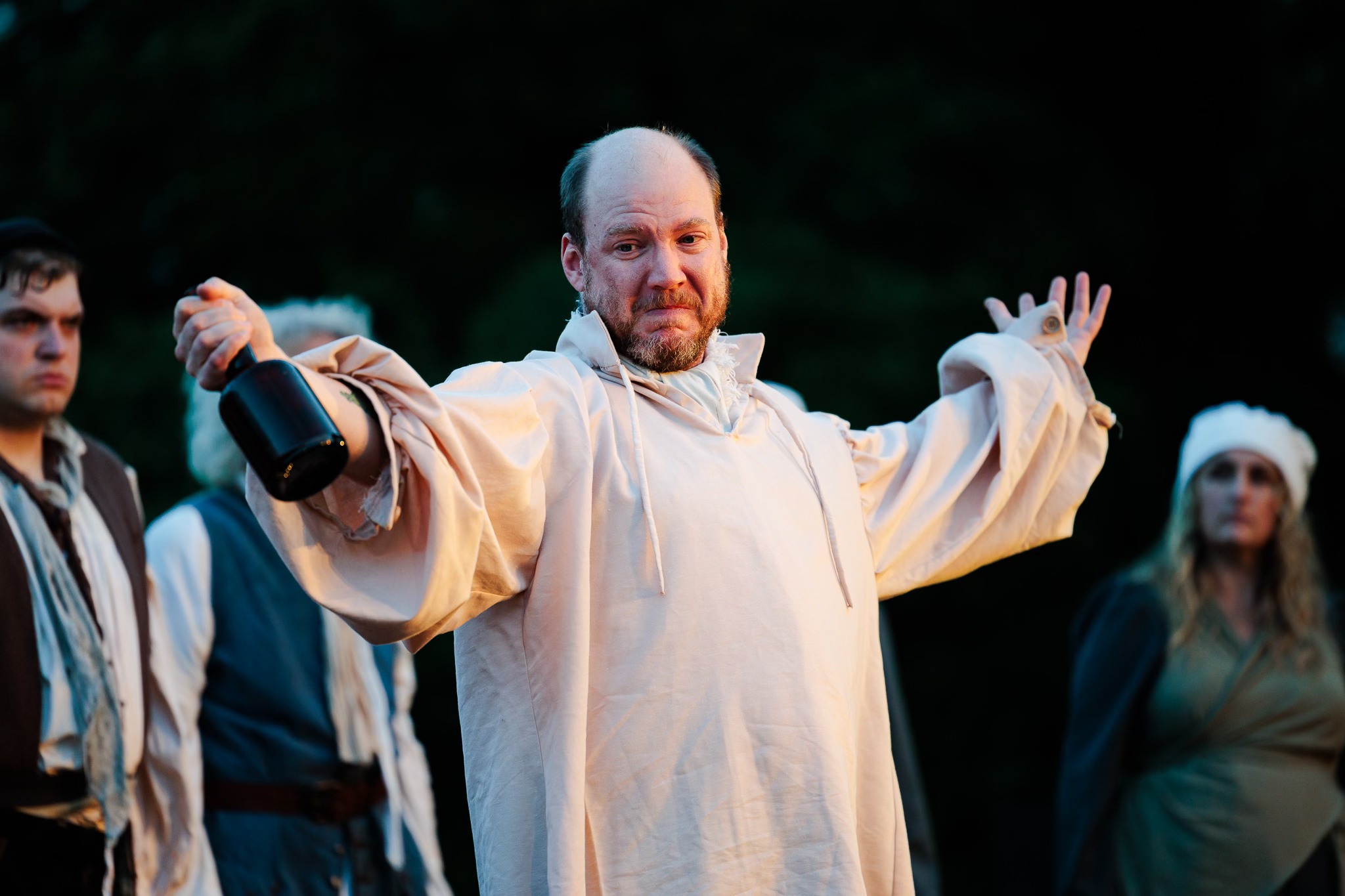 |
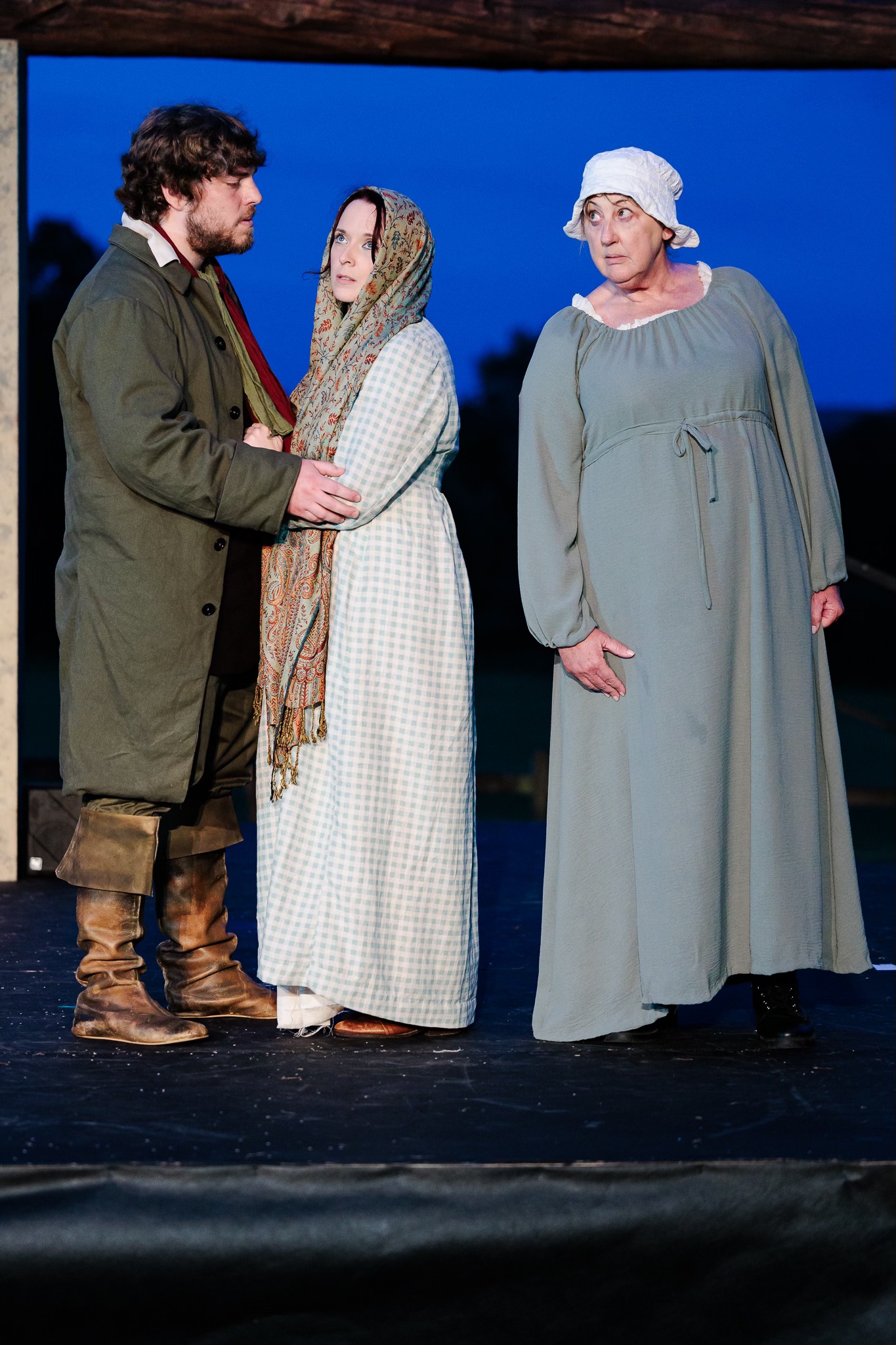 |
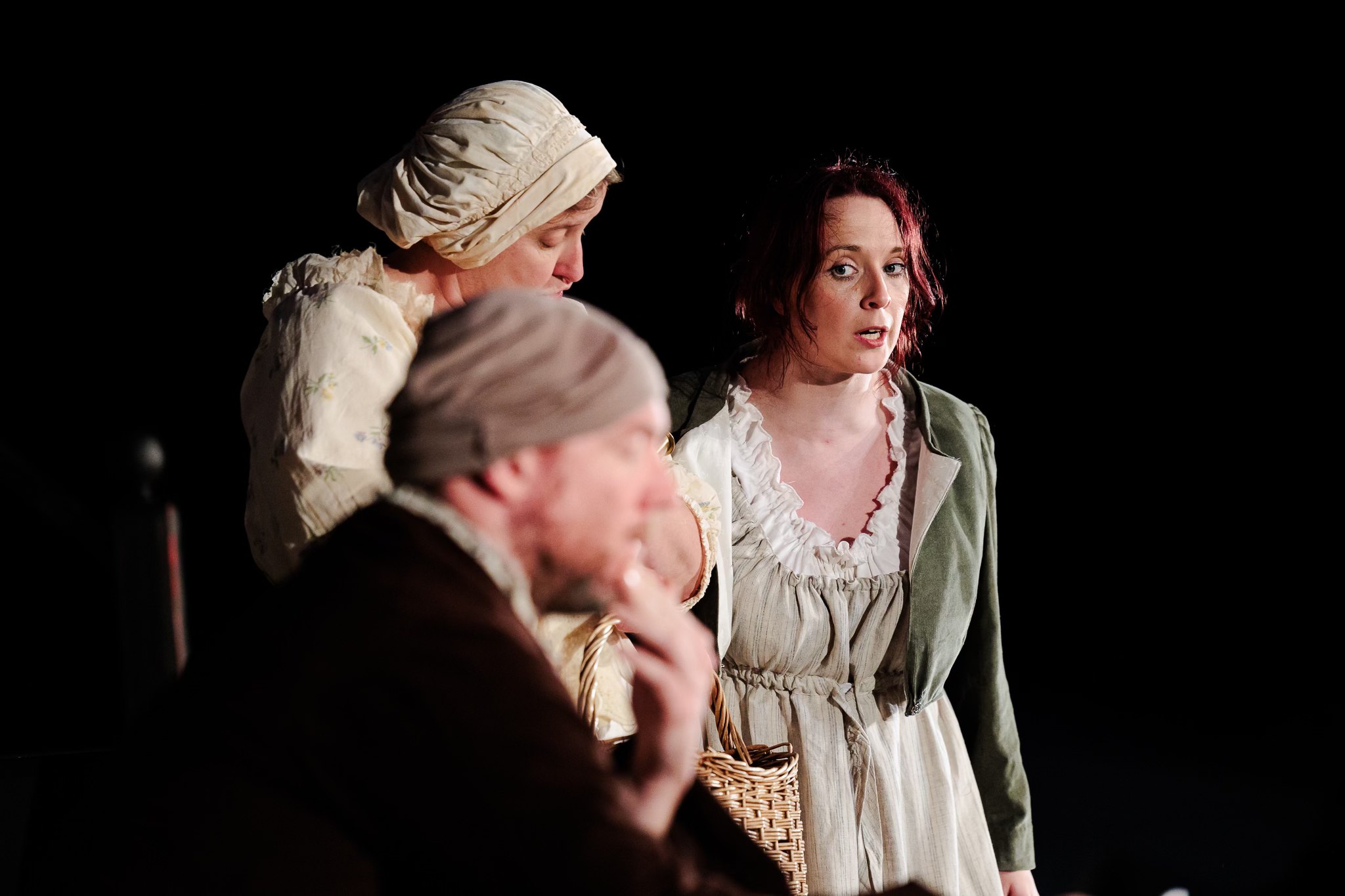 |
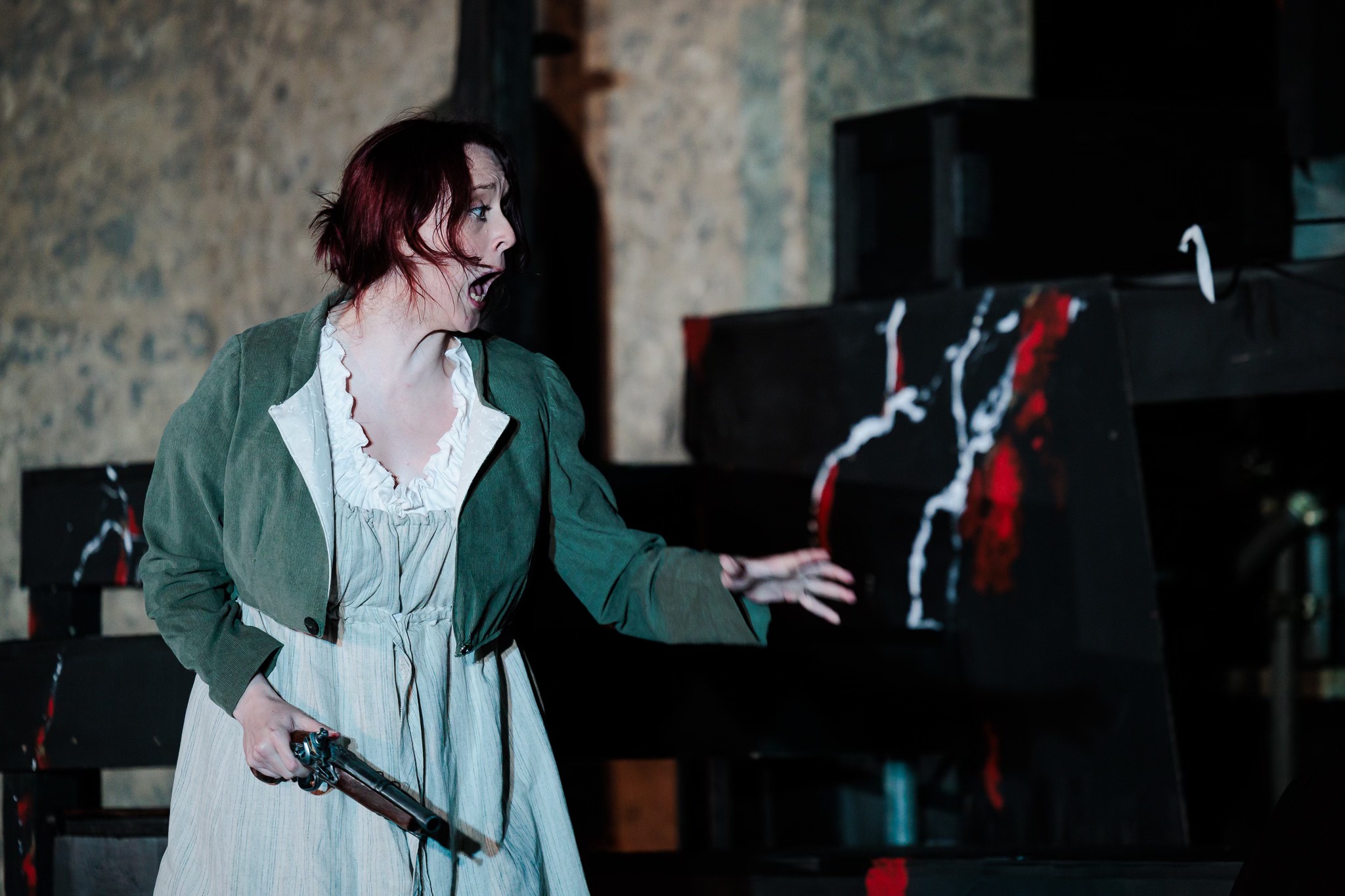 |
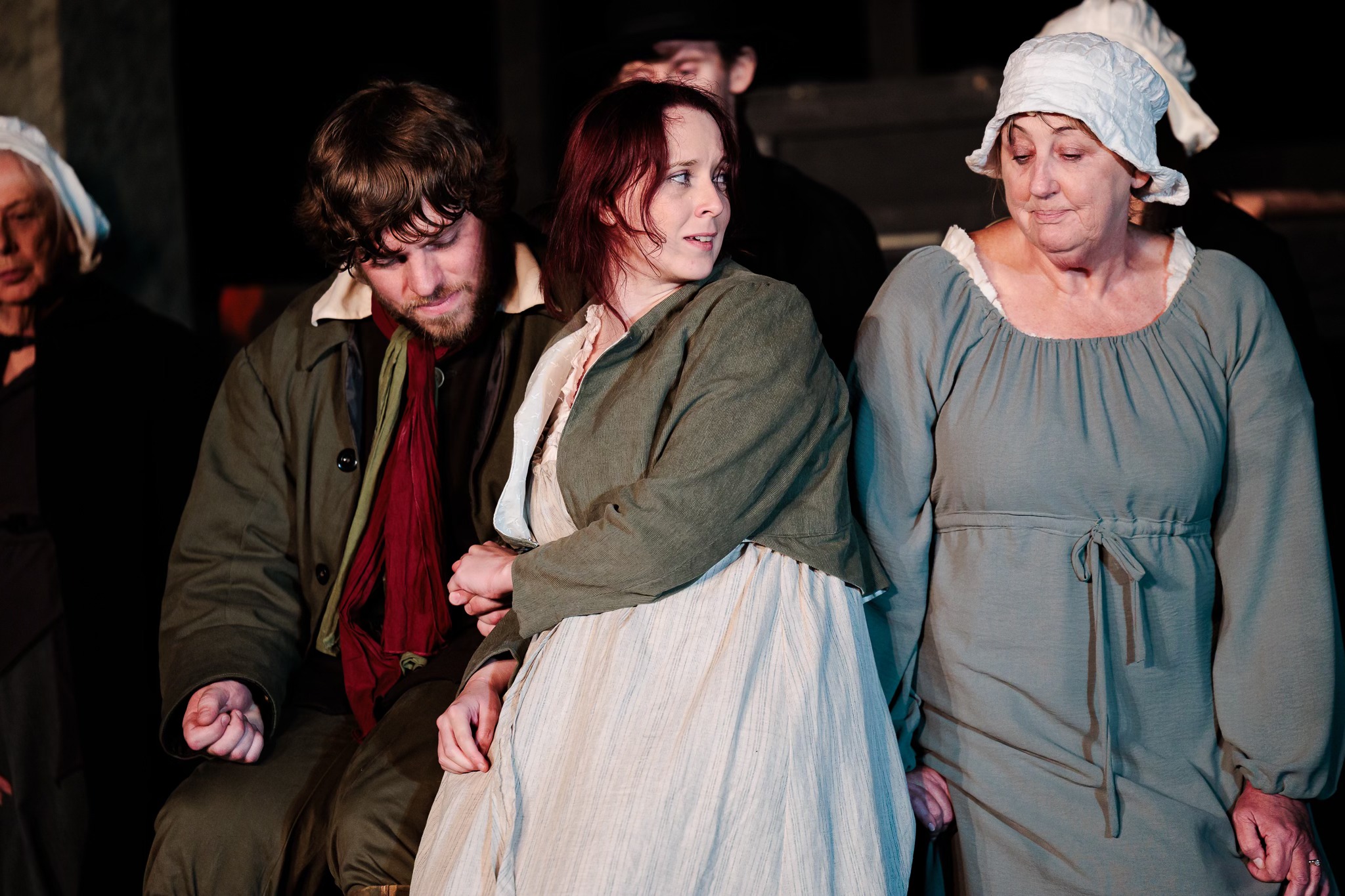 |
© NODA CIO. All rights reserved.

 Show Reports
Jamaica Inn
Show Reports
Jamaica Inn